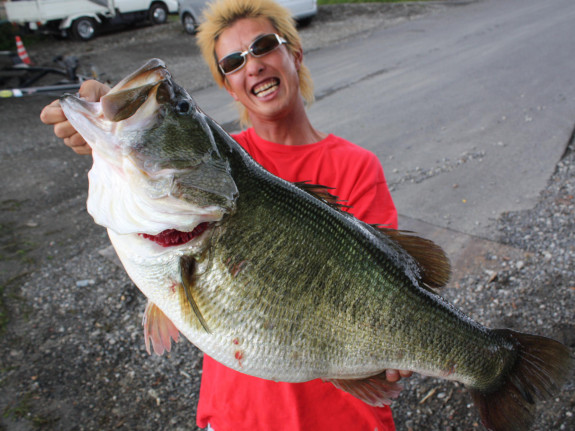I Ask Myself This All The Time
What is a big bass? What's the standard by which we should measure? In the world of bass anglers a 10# largemouth is a true giant but is it really? Should the world record be the standard? Or should we use state records? Or is there a better way?
Now let's take it one step further and split it into three specific subspecies of black bass. The largemouth, smallmouth and spotted bass.
I've taken the time to get a rough average of each species by state record. I rounded up or down to the nearest 1/4 pound for this discussion. We don't need to be perfectly accurate we just need a rough guide to go by. Let's get down to the business at hand.
Largemouth Bass
The world record is 22 pounds 5 ounce caught in Lake Biwa, Japan by Manabu Kurita is now the benchmark that all other big bass will be measured against but is that a fair comparison if you live in Iowa? What about California? It produced Dottie and a 22 pound 3 ounce giant. I don't think so.
What about the other two popular strains of black bass?
Smallmouth Bass
The world record is 11 pounds 15 ounces caught in Dale Hollow Lake, Tennessee by David Hayes in 1955.
Spotted Bass
World record spotted bass 11 pounds 4 ounces caught by Nick Dulleck in New Bullards Bar Reservoir California.
Average State Record Weights
Not every state has all species of bass for example only 49 states have largemouth (Alaska being the lone state with no bass) so the weights listed are a rough average for the states that have recorded a state record for that species of fish.
Largemouth - 13.75# (49 states)
Smallmouth - 7# even (48states)
Spotted Bass - 6.5# (23states)
Here's The Deal
I use two separate standards I use the average weights above and more importantly the given body of water I'm fishing. Since I've caught a couple double digit largemouth my constant goal is to break the 10 pound mark every year. The reality is knowing 10 pounders are rare animals and the national average state record is 13.75 pounds, so I believe a 7 pound fish is a trophy regardless of where in the country you fish. I also think that if we could open the heads of every bass angler out there and find out the real truth we'd find out that most of our personal best largemouths would probably be about 6 pounds. Which is a really good fish and nothing to be ashamed of.
The problem is with our perception of what a trophy fish is. The fact that we have access to so much information so quickly from so many parts of the country it has distorted our perception of reality.
A guy catches a 7# largemouth from a strip pit Southeast Kansas; is it any less of an accomplishment than a guy in Texas or California catching a 12 or 14# fish? I would argue no. It's all relative. You can make the same argument using different bodies of water in a given state. Again. It's all relative.
In the above picture I'm holding a 16" spotted bass and I was pumped. That fish is only two inches away from my initial goal of an 18" 3# fish from that creek. I know fish in the 18" range live there because a friend has caught one and we have both seen what we believe to be 20"+ fish in that area but until one of us breaks the 20" mark, 18" is the standard. (BTW the Alabama state record spotted bass is 8 pounds 15 ounces).
Here's the bottom line, if you catch a fish that's half way to a state record (regardless of species) you've done something. Keep going after what your big fish is. Focus on your goals and try to block out the white noise of our wired world.You can do this. You can score your new personal best. You just need to figure what that is and go after it.





No comments:
Post a Comment